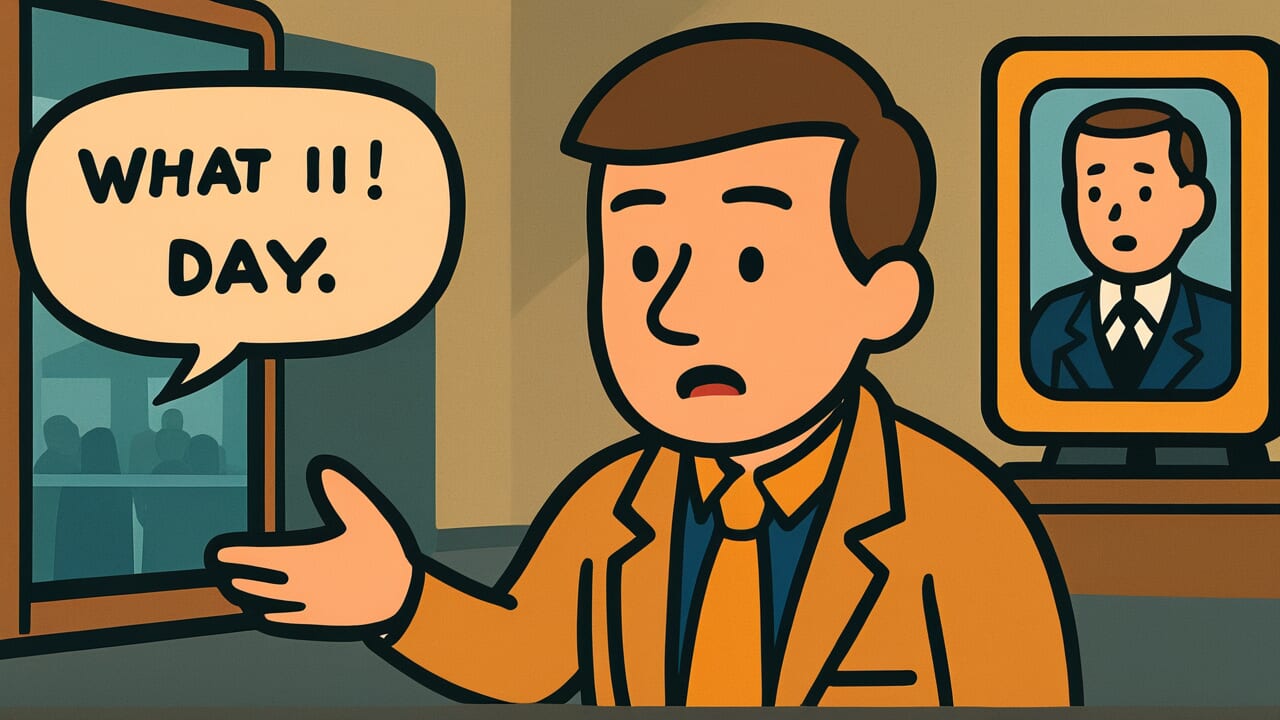How to Read “Say what you want to say tomorrow”
Iitai koto wa asu ie
Meaning of “Say what you want to say tomorrow”
This proverb teaches that even when you have something to say, you shouldn’t speak immediately. Instead, you should wait overnight before saying it.
It especially warns against speaking when you’re emotional. When you feel angry or frustrated, don’t let those feelings control your words.
People can’t think clearly when their emotions run high. Words that seem right in the moment might hurt others unnecessarily. They might also damage your own position.
After sleeping and waking up the next day, your emotions settle down. You can then see better ways to choose and express your words.
This wisdom still works today. Use it before important conversations or when you need to criticize someone.
Taking time helps you tell the difference. You can separate what truly needs to be said from what doesn’t. This makes constructive communication possible.
Origin and Etymology
No clear historical records show when this proverb first appeared. However, its structure suggests something important.
It expresses the “wisdom of waiting” that Japanese people have valued since ancient times.
The word “tomorrow” is particularly interesting. The proverb doesn’t say “wait a while.” It specifically says “tomorrow.”
This specific timing shows practical wisdom. Experience teaches that sleeping overnight naturally calms human emotions. This understanding lies behind the expression.
Japan has long valued “letting things sit overnight” in many situations. People avoid rushing important decisions. They don’t act immediately when angry.
This cultural tendency toward caution over quick judgment has deep roots. It may connect to agricultural society, where careful thinking mattered more than hasty choices.
The proverb also shows deep insight into human psychology. The same problem looks different at night versus in the morning.
Many people have learned through experience that emotional statements lead to regret. This simple phrase captures that universal lesson perfectly.
Usage Examples
- I got angry at my employee’s mistake, but I reminded myself “say what you want to say tomorrow.” I said nothing and went home that day.
- I wanted to argue back during a fight with my girlfriend. But I remembered “say what you want to say tomorrow” and decided to calm down first.
Universal Wisdom
“Say what you want to say tomorrow” contains deep understanding about human emotions and reason. We humans are emotional creatures. At the same time, we can make rational judgments.
However, these two aspects don’t always work in harmony.
When emotions surge, our brains get controlled by the urge to “react right now.” This is partly our defensive instinct as living beings.
But in social life, immediate reactions don’t always produce the best results. Sometimes we say words we can’t take back. We might even destroy relationships.
This proverb has been passed down for so long because many people have experienced this failure. They said hurtful words in anger to someone precious.
They got emotional and said things that didn’t need saying. Such regrets repeat themselves across time, as long as we remain human.
Our ancestors understood something important. Time acts as medicine that calms the flames of emotion.
By specifying “overnight” as the concrete timeframe, they made this wisdom practical. The proverb acknowledges human weakness while showing how to overcome it.
These words were born from deep love and understanding of humanity.
When AI Hears This
Analyzing emotional speech through information theory reveals an interesting structure. Speech during anger or excitement is like intended information mixed with massive noise.
In communication engineering, we use “low-pass filters” to extract essential information from noisy signals. These devices remove only high-frequency interference.
The human brain performs similar processing when sleep intervenes. Emotions are like rapidly changing high-frequency signals. After one night, they naturally decay.
Meanwhile, what truly needs to be communicated remains as stable low-frequency signals. Sleep as a biological process automatically functions as a noise-removal filter.
Even more interesting is the connection to “redundancy reduction” in information theory. When emotional, people repeat the same things over and over. They add large amounts of unnecessary information.
This is redundant data that reduces communication efficiency. Waiting overnight lets the brain automatically compress information. It organizes thoughts into a form that conveys maximum meaning with minimum words.
This proverb represents wisdom that utilizes humanity’s instinctive signal processing ability. Time as a filter removes emotional high-frequency noise. It extracts only high-purity messages.
This is truly a natural communication optimization process.
Lessons for Today
Modern times let us instantly share our thoughts through social media and messaging apps. This makes “say what you want to say tomorrow” more important than ever before.
One breath before pressing send, one night before posting can protect your relationships. It preserves your own dignity.
When you write an angry email, save it as a draft instead of sending it. Reading it the next day, you’ll be surprised how calmly and kindly you can rewrite it.
This wisdom isn’t simply telling you to “endure.” Rather, it’s a method for conveying what you truly want to say most effectively.
Emotional words close people’s hearts. But carefully chosen words reach people’s hearts.
Postponing what you want to say until tomorrow isn’t weakness but strength. It’s the wisdom of mature adults who control their emotions and choose better communication.
You can do this too. One small night of time makes a big difference.



Comments